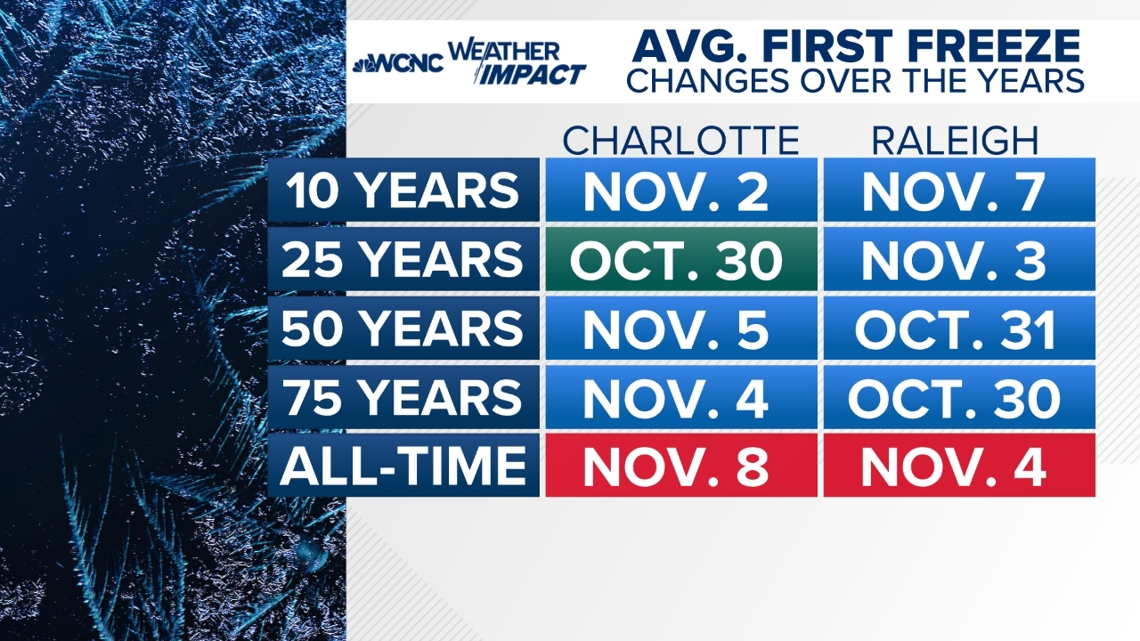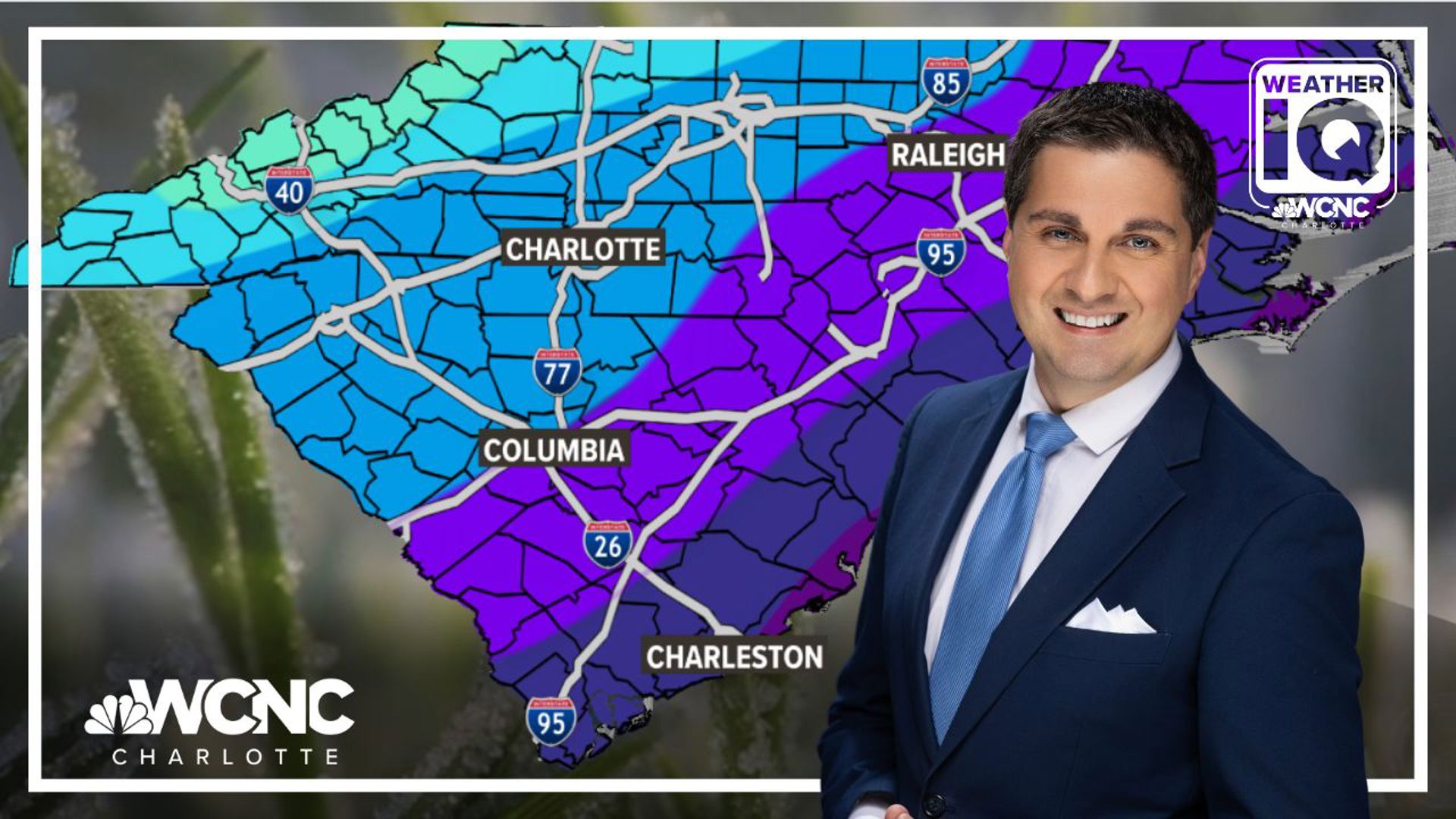CHARLOTTE, N.C. — Freezing temperatures will soon take hold in the Carolinas as we get closer to winter across the region.
Typically, freezing temperatures start in the mountains in early October. For Charlotte, it's usually not until early November that we see temperatures reach 32 degrees or colder.
Here are the average first freeze dates:
- Banner Elk: Oct. 3
- Boone: Oct. 13
- Morganton: Oct. 22
- Statesville: Oct. 25
- Monroe: Oct. 26
- Albemarle: Oct. 27
- Taylorsville: Oct. 29
- Concord: Nov. 1
- Gastonia: Nov. 6
- Charlotte: Nov. 8
All of these are based on their all-time averages. Some of these locations only have data across 25 years, while Charlotte's records date back to 1878.
Is the first freeze getting later?
We are going to compare Raleigh to Charlotte. The graphic below shows the average first freeze over 10 years of data, 25 years, 50 years, 75 years and all time (during the full length of record keeping).
To answer the question, Raleigh is seeing a later freeze in recent years. The first freeze typically arrived before Halloween 75 years ago. However, over the past 10 years, it happened about a week into November.
Charlotte is much more inconsistent with the first freeze date varying from Oct. 30 to Nov. 7.


Charlotte's earliest freeze happened in the year 2000, when the Queen City dipped to the freezing mark on Oct. 9. Since then, five of the 10 earliest freezes have happened. This drags the 25-year average down significantly, while the 10-year average is only down slightly. Since Charlotte is closer to the mountains than Raleigh, it's more susceptible to colder temperatures from time to time.
Just because the recent quarter century has had some earlier first freezes, winters overall have been warmer meaning the number of freezing days is getting lower compared to 50 to 100 years ago.
Contact Chris Mulcahy at cmulcahy@wcnc.com and follow him on Facebook, X, Instagram and TikTok.

